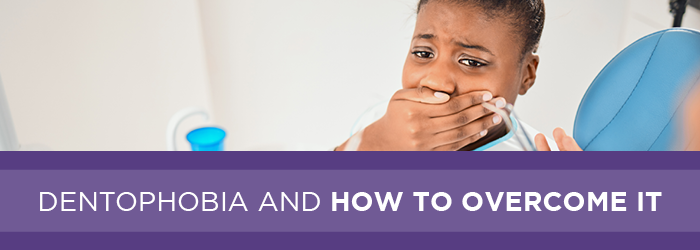Many people experience some type of fear when they go to the dentist. However, for some people, going to the dentist can cause feelings of intense fear, panic attacks, and complete avoidance of dental care.
If you or a loved one experiences extreme stress and anxiety when it comes to dental appointments, dentophobia may be the culprit. In this article, we will cover what dentophobia is, how it can impact your oral and overall health, and ways to overcome it.
What is dentophobia?
Dentophobia is an extreme fear of dentists or dental procedures. It is an anxiety disorder that can cause a person to experience intense fear, panic, and avoidance of dental care, even when they are experiencing pain. The biggest difference between dentophobia and general fear of the dentist is that people who experience fear will still likely see their dentist despite anxious feelings. People with dentophobia will not.
Who develops dentophobia?
Anyone can develop dentophobia. People who have anxiety disorders or other phobias are at a higher risk of developing it. Additional risk factors include:
- A negative experience at the dentist
- Having a parent, sibling, or other close family members with the phobia
- Experiencing dental fear as a child
- Experiencing high levels of stress
- Having other mental health disorders such as depression
What are the symptoms of dentophobia?
Symptoms of dentophobia may include shortness of breath, rapid heartbeat, sweating, chills, nausea, indigestion, and feeling faint when thinking about going to a dental appointment. People may cry when they think about going to a dentist's office or suffer from insomnia before an upcoming appointment.
In severe cases, people will refuse to seek dental care even if they are in pain or have a dental emergency.
The impact of dentophobia on health
Dentophobia can impact both the oral and overall health of those who suffer from it. People who do not see a dentist twice a year are at a higher risk of developing decayed teeth, gum disease, heart disease, missing teeth, complications from diabetes, and more.
The impact of dentophobia extends past oral health. A person’s mental health is also affected by avoiding oral health care. For example, people who are embarrassed about the state of their teeth may avoid seeing loved ones. They may also have low self-esteem and low self-confidence which can impact how they perform at school or work.
How to overcome dentophobia
In many cases, it can take years to fully overcome dentophobia. Therapy, exposure therapy, and anti-anxiety medications are some long-term solutions your mental health team may recommend. However, there are things that can be done in the short term that may help people with dentophobia cope with anxiety:
- Meditation before appointments
- Breathing exercises that calm nerves
- Distractions such as games on a smart device or a show
- Discussing your fears with your dentist before an appointment
- Exercise
If you or a loved one has dentophobia the most important step to take is to seek professional help. Extreme fear of the dentist and avoiding necessary oral health care can severely impact the quality of life of those with the phobia.
Learn more about ways to overcome a fear of the dentist here.


